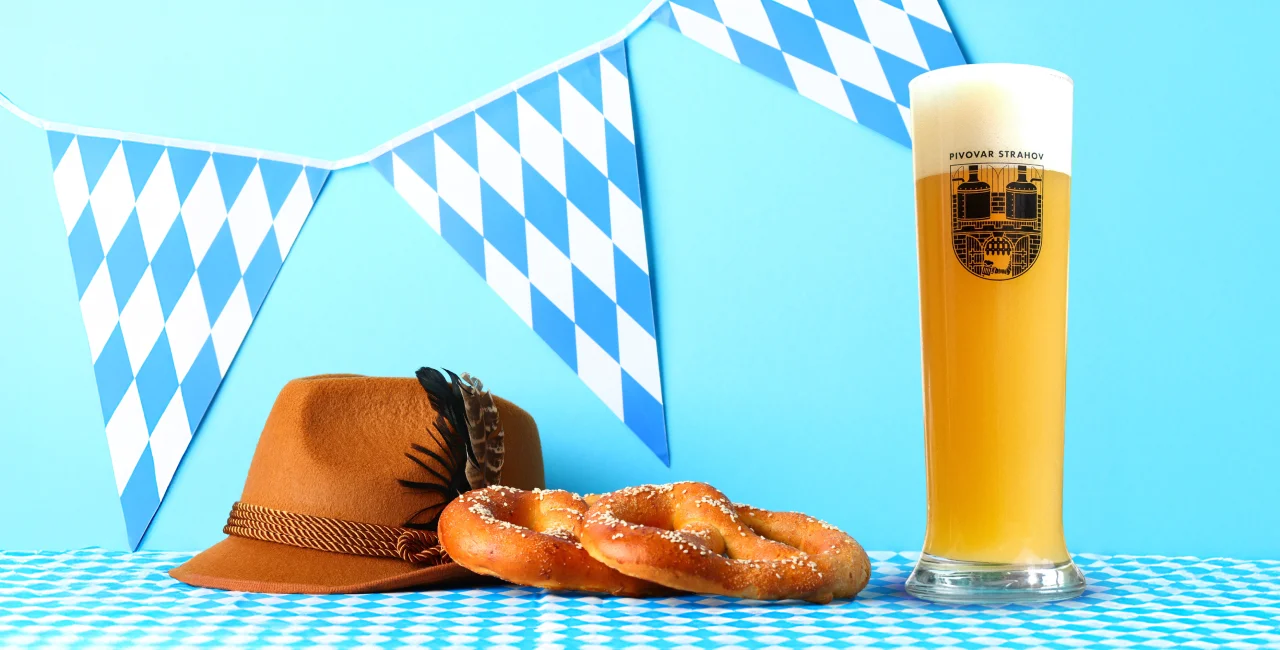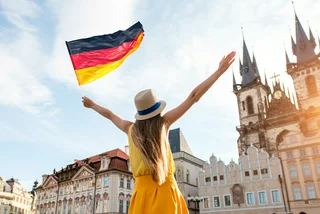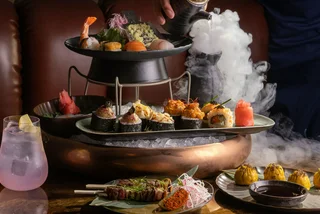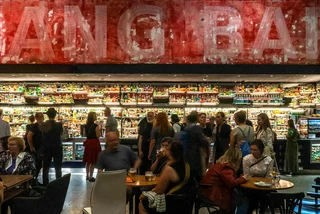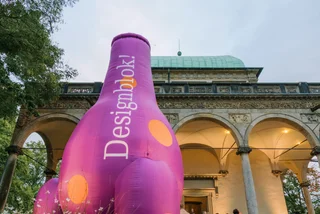Oktoberfest has begun in Munich, and Prague isn’t far behind. The Bavarian festival, held annually for two weeks until the first Sunday in October, began as a royal wedding celebration for Crown Prince Ludwig and Princess Therese in 1810. Today, it features beer tents, German cuisine, and amusement rides.
Though rooted in Bavaria, the tradition has spread—and Prague has made it its own, trading giant tents for monastery courtyards, beer gardens, and rooftop venues. Expect steins of Märzen and Helles, pretzels and pork knuckles, live folk bands—all at a fraction of Munich’s prices.
‘Czech hops deserve their own celebration’
High above Prague, within Strahov Monastery and a short walk from Prague Castle, Pivovar Strahov is one of the city’s most atmospheric spots to raise a stein. Brewer Marek Kocvera oversees the annual October Beer & Food Fest (Sept. 27), inspired by Munich’s Oktoberfest but with a distinctly Czech twist.
“It’s not a massive event,” Kocvera says. “Customers can enjoy everything at the tables in a more intimate atmosphere. On tap, you’ll find seven of our beers, from lagers to top-fermented ales and even sour beers with cherries. This year, Berlin’s Straßenbräu joins with four of its craft beers.”
Strahov’s festival draws a mix of locals and tourists, including many from Prague’s German community. “Both countries have a strong historical tradition, the dominance of bottom-fermented beers, and a regional identity,” Kocvera explains. “Beer is part of everyday culture; pubs are social centers, and drinking beer is more of a cultural act than just alcohol consumption.”
Differences come down to variety: “In the Czech Republic, light lagers dominate. There’s huge diversity in Germany: Helles, Pils, Kölsch, Märzen, Altbier, Rauchbier, Berliner Weisse, Bock.”
“Our Festbock has a semi-dark color and is based on the original Märzen beers served at Oktoberfests until the 1930s,” Kocvera adds.
“Unlike the lighter beers you’ll find in Munich today, ours is brewed with a significant proportion of Munich malt and dry-hopped with modern German hops. We also celebrate autumn’s fresh hops—our Antidepressant Dark Lager is similar to a German Dunkel but with a pronounced aroma from Žatecký poloraný červeňák hops.”
Obatzda, accordion, and Prague Castle views
Across the river, Greenhouse at the Fairmont Golden Prague offers a culinary twist on Oktoberfest. From Sept. 20 through Oct. 5, expect a curated menu blending Czech and Bavarian flavors: Obatzda (German beer-cheese spread) with pretzels, cheese spaetzle, rotisserie pork knuckles, sausages, caramelized onion quiches, and German beer on tap.
“We specially brought in German beers, including Augustiner, a famous Oktoberfest beer,” says manager Khrystyna Shazhko. Music is central to the experience.
“Every Thursday and Saturday we have a live band playing old-school Czech tunes with Oktoberfest flair,” Shazhko adds. “It gives an Oktoberfest vibe, but with a traditional Czech interpretation.” Accordion performances on Fridays keep the festivities lively. (The venue’s outdoor seating offers a rare bonus: sweeping Vltava views.)
If anyone were to doubt the rising popularity of German food and drink on the local dining scene, the year-round Oktoberfest Pub opened in the Czech capital year-round 2024. It now brings freshly tapped Paulaner Helles, schnitzels, and Bundesliga football to the Czech capital from its permanent address in Old Town. Celebrations at the pub ramp up around this time of year with special events.
Germans in Prague number over 20,000
For many, Oktoberfest evokes images of lederhosen, brass bands, and oversized beer steins—a bit of kitschy, over-the-top fun, not unlike Halloween or St. Patrick’s Day. But among some German expats in Prague, it carries real cultural significance, offering a moment to celebrate heritage, beer, and community.
“People with an interest in German culture and language tend to attend these festivities just as seriously as any German native would,” says Thomas from Leipzig, a moderator of the Facebook group Deutsch in Prag who lives in the Czech capital.
That said, he admits, “I never attended and never will attend Oktoberfest. I prefer to immerse myself in Czech culture these days.”



